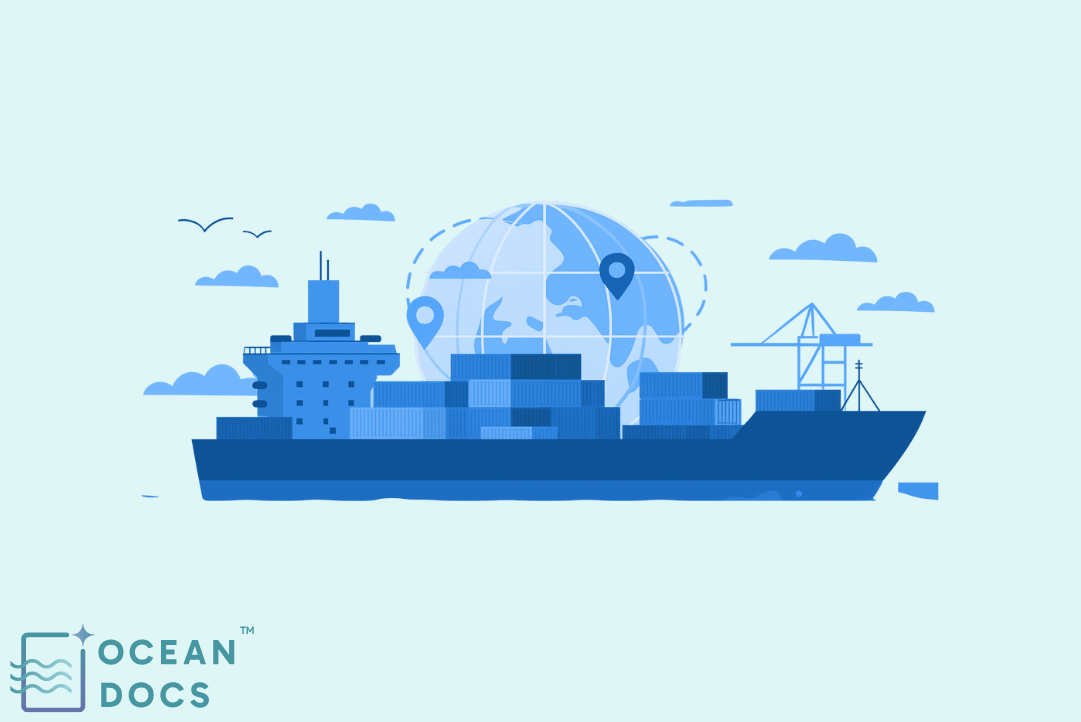
OceanDocs: What Is SOLAS and Why Crews Must Know It
September 26, 2025 By OceanDocs AI
At sea, safety is never optional. Cargo vessels, tankers, and passenger ships all face risks of fire, collision, or system failure. To minimize these risks, the International Maritime Organization (IMO) introduced one of the most important safety frameworks in shipping: SOLAS (Safety of Life at Sea).
But what exactly is SOLAS, and why does it matter so much for crews? At OceanDocs, we help crews not only understand these requirements but also stay prepared with smart, organized maritime documentation.
What Is SOLAS?
SOLAS stands for the International Convention for the Safety of Life at Sea. First adopted in 1914 after the Titanic tragedy, the modern framework was introduced in 1974 and continues to evolve with industry needs.
The goal is simple: to set minimum safety standards for construction, equipment, and operation of merchant ships. With more than 160 countries adopting SOLAS, it has become the global benchmark for safety and compliance at sea.
Why SOLAS Matters for Crews
SOLAS is not just a corporate requirement. It directly affects the daily routines of seafarers:
-
Training and Awareness: Crews must know emergency procedures, including lifeboat drills and use of ship documents like muster lists.
-
Emergency Readiness: In case of fire or equipment failure, SOLAS knowledge ensures quick, coordinated response.
-
Accountability: Port State Control inspections check for SOLAS compliance. Missing documents or incomplete drills can mean detentions and penalties.
SOLAS and Maritime Documentation
A major part of SOLAS is about keeping documentation updated and accessible. Ships must maintain:
-
Fire Control Plans
-
Cargo safety declarations
-
ISM Code compliance records
-
STCW certificates for crew qualifications
These documents are checked during SIRE vetting, flag inspections, and daily operations.
With OceanDocs, crews don’t have to dig through binders or worry about missing papers. Our platform digitizes, organizes, and makes documents searchable — so compliance is always at hand.
Key Chapters Crews Should Know
Some chapters directly affect onboard operations:
-
Chapter II-2: Fire protection and extinguishing systems
-
Chapter III: Life-saving appliances and arrangements
-
Chapter V: Safety of navigation (includes COLREGs)
-
Chapter IX: Safety management (ISM Code)
-
Chapter XI-2: Ship and port facility security (ISPS Code)
Crews encounter these rules during drills, safety checks, and daily routines.
SOLAS in the Bigger Picture
While SOLAS is focused on safety, it complements environmental frameworks like MARPOL. Ships that comply with SOLAS are also better positioned to follow IMO environmental standards such as ballast water management and pollution prevention.
Why Digital Access Matters
For crews, accessing the right SOLAS-related documents during an inspection or drill can be stressful. Outdated or scattered files often cause delays.
With OceanDocs, documents like the Fire Control Plan, ISM Code procedures, and STCW certificates are digitized and instantly searchable. This reduces inspection stress, saves time, and helps crews focus on actual safety tasks.
Consequences of Non-Compliance
Ignoring these requirements can lead to:
-
Vessel detention at ports
-
Heavy fines and operational delays
-
Higher insurance premiums
-
Damaged reputation in vetting reports
-
Worst of all, increased danger during emergencies
Tips for Crews to Stay Compliant
-
Understand the rules: Know which parts of SOLAS apply to your role.
-
Keep documents updated: Ensure all records are current and easy to access.
-
Take drills seriously: Practice as though it’s a real emergency.
-
Use smart tools: Platforms like OceanDocs help stay audit-ready.
-
Report gaps: Escalate missing docs or faulty equipment quickly.
Final Thoughts
For crews, SOLAS is more than a regulation — it’s a way of working. It shapes how you respond to emergencies, how you prepare for inspections, and how you keep your vessel safe every day.
At OceanDocs, we make compliance easier by turning shipping documents into a smart, digital system that supports SOLAS requirements. With updated records, searchable access, and real-time readiness, crews can sail with confidence.
Safety at sea starts with compliance — and compliance starts with documentation.